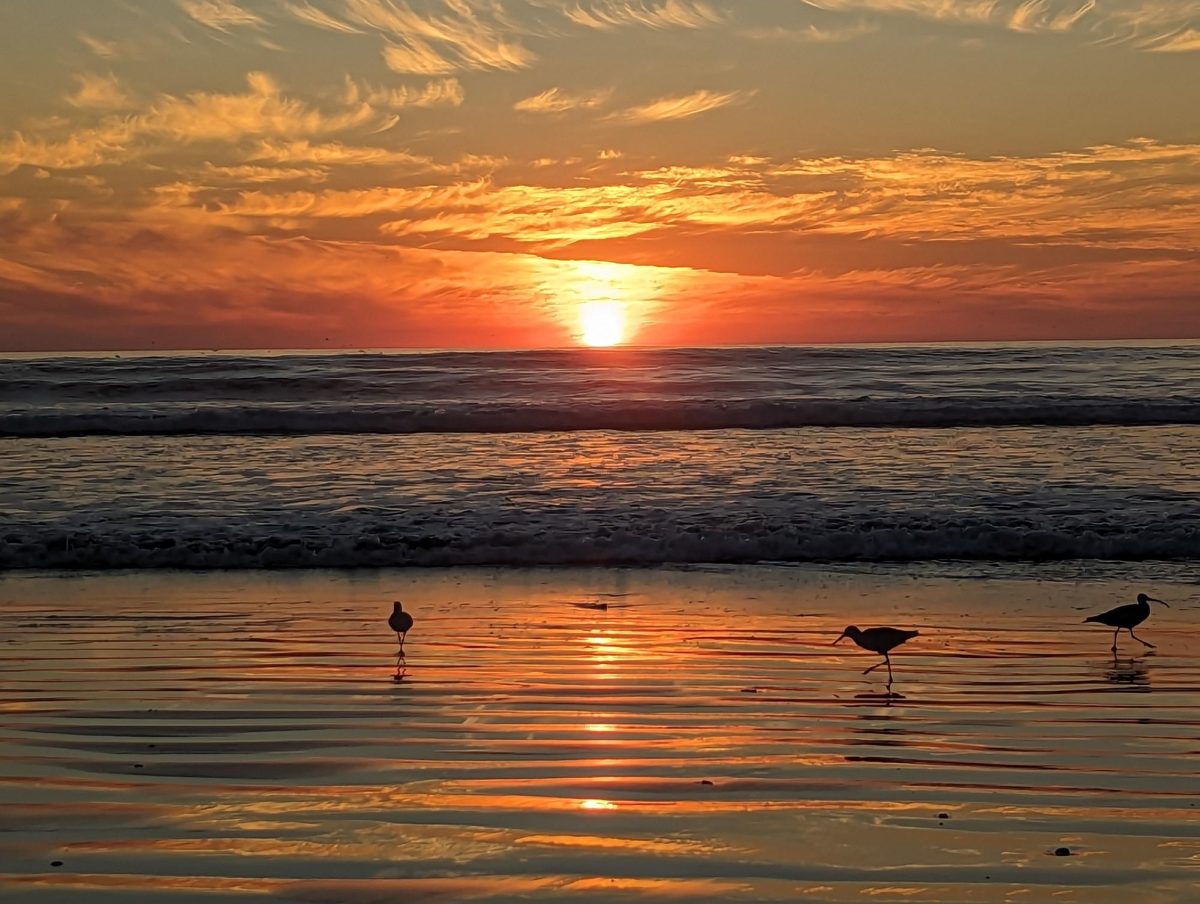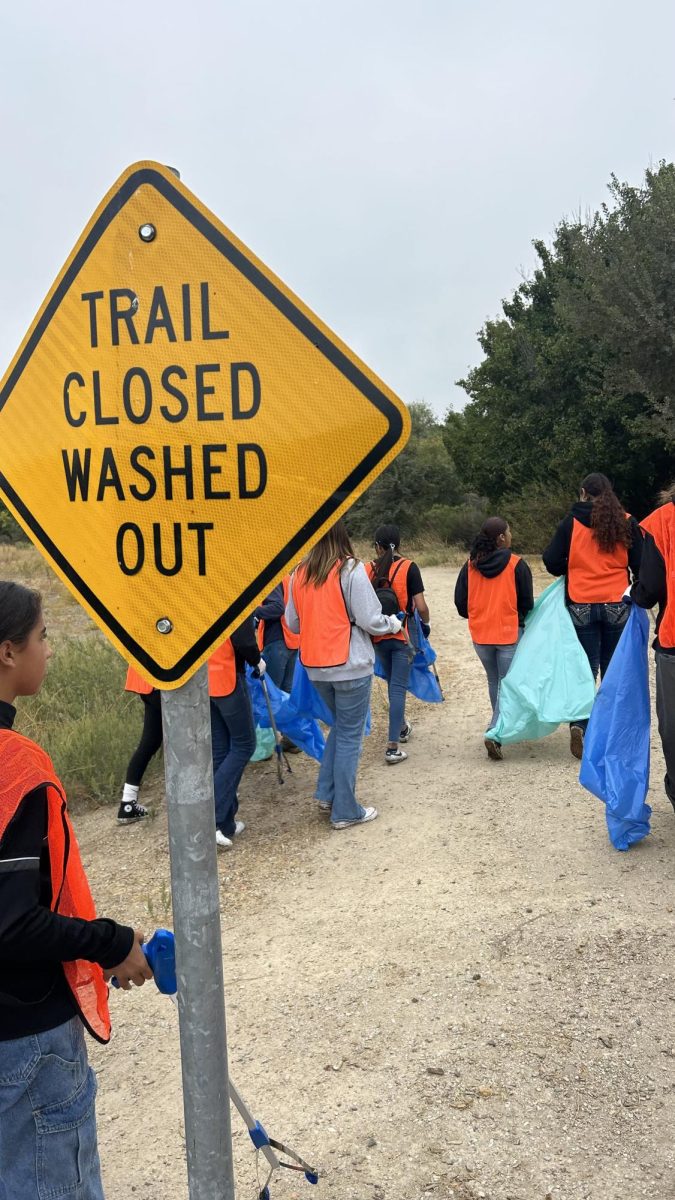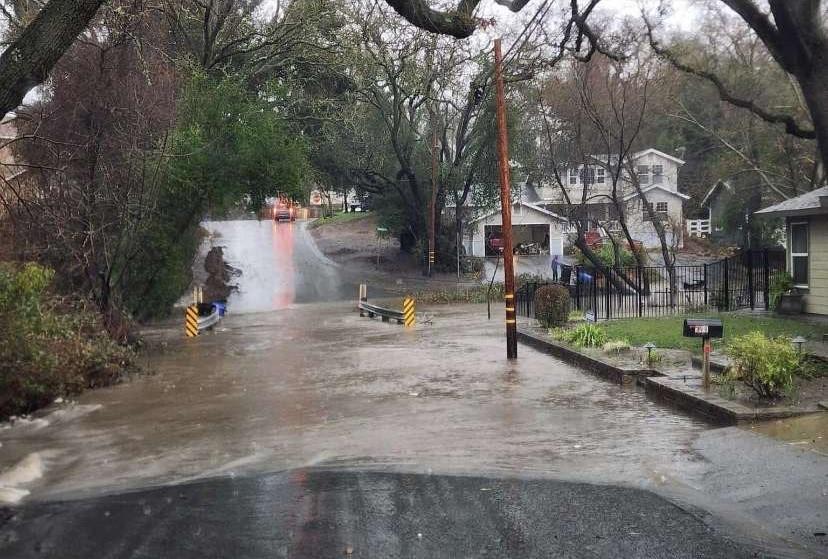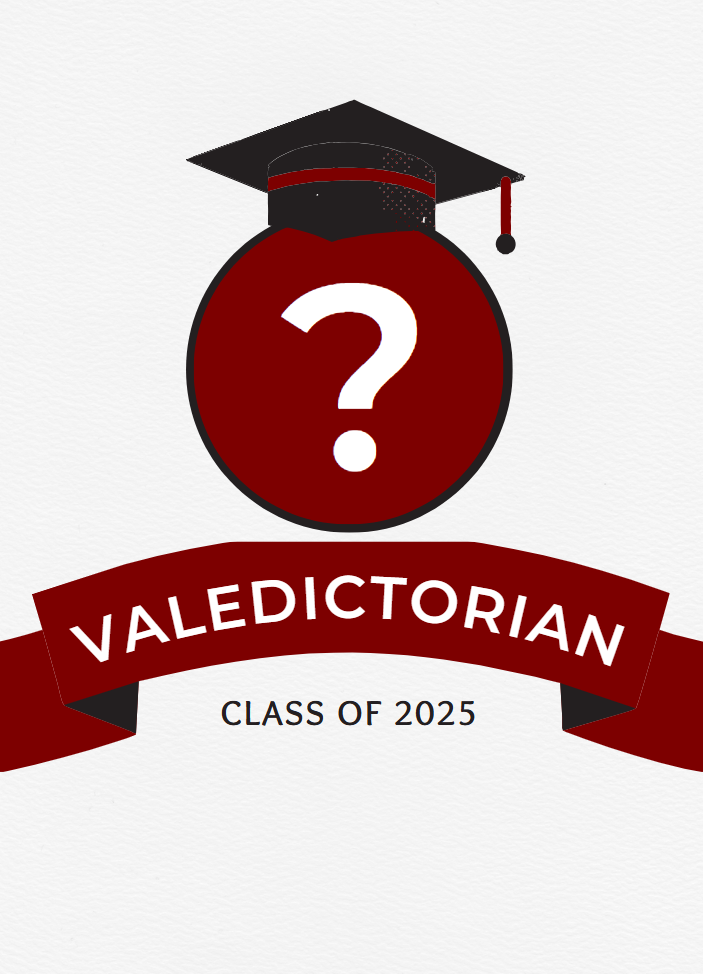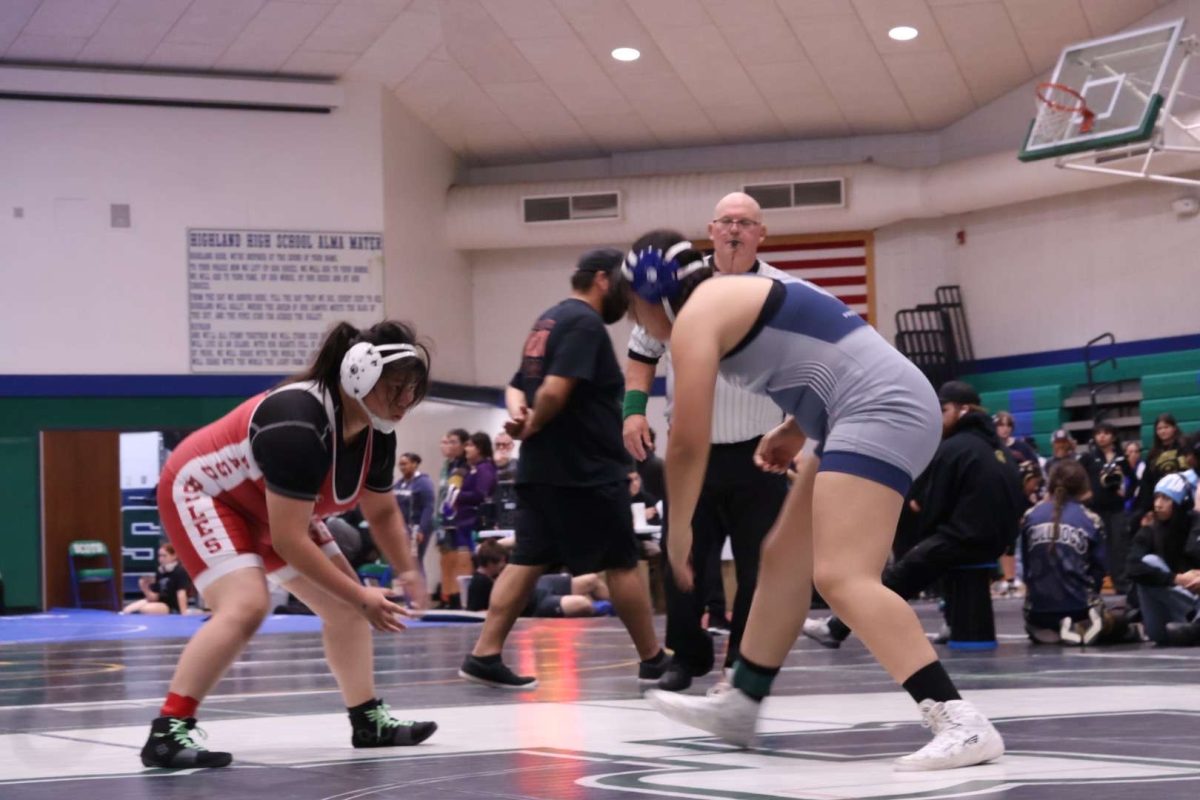Committed To The Land
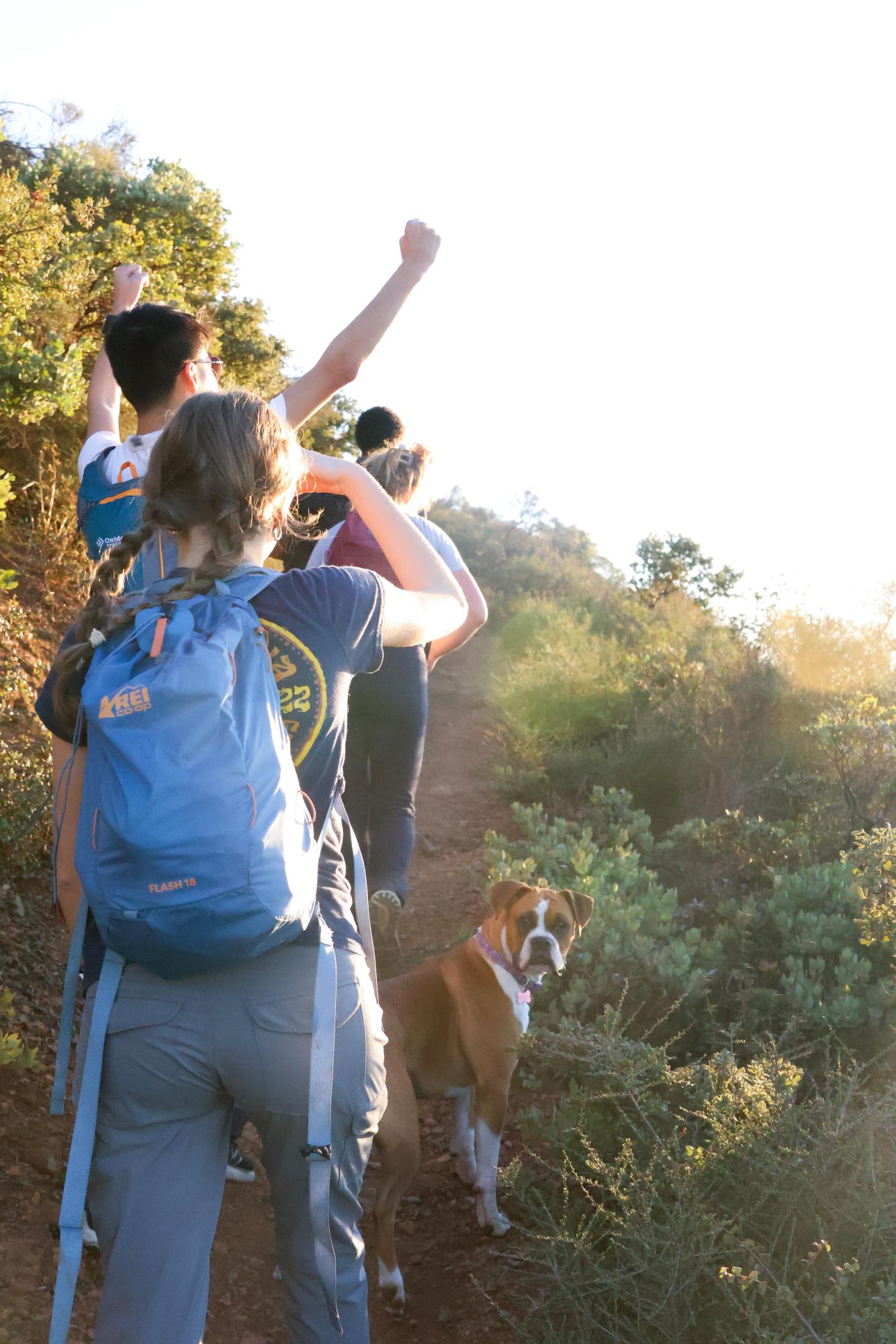
Immediately following Trump’s inauguration on Jan. 20, the public was swarmed with hundreds of executive orders, including withdrawals from the World Health Organization. Executive Order 14162 titled, “Putting America First In International Environmental Agreements,” which prompted the United States to withdraw from the Paris Climate agreement. In Dec. 2015, 196 parties entered into the legally binding Paris Climate Agreement, which went into effect on Nov 4, 2016. The Paris Climate agreement is an international treaty to help combat climate change, with a goal of bringing global temperatures to 2 degrees celsius below pre industrial levels. His lengthy executive order titled “Unleashing American Energy” proposes the resuming of oil drilling and mineral farming on the Outer Continental Shelf. These changes have stirred up concerns from the experts to the students on our campus. “My aunt is a park ranger at Yellowstone and she has a lot of concerns about preventing people from messing with the animals. She said the buffalo petting season is going to be very interesting with a smaller staff,” junior Ayda Sloan stated when asked about her concerns. Hours of operation for national parks will remain as they are for the most part, major parks such as Yosemite, Great Smokey, Arches, Zion will remain open 24 hours a day, 7 days a week. However, services in the parks may see shorter hours due to the lack of employees, including decreasing the park’s educational opportunities.
This executive order overrides the Electric Vehicle Mandate which was put in place by the Biden Harris Administration. This mandate stated that 67% of new light-duty vehicles and 46% of medium-duty vehicles would be required to be electric by 2032, but was terminated by the Trump administration long before it would have gone into effect. By overriding this proposition, the Trump Administration is effectively removing the emission limits on gas powered vehicles, stating that limiting markets to electric only vehicles would severely damage competition and economy, prioritizing markets over Climate Health. These changes in the United States Environmental Policies have sparked frustration and criticism from climate organizations and environmental experts. “There is no possible world in which greenhouse gases are not a threat to public health, It’s simple physics coming up against simple physiology and biology, and the limits of our existing infrastructure to protect us against worsening climate fueled extremes,” Kim Cobb, a climate scientist from Brown University, stated in an interview with AP News. Contrary to this belief, there are people who believe that these changes are very beneficial, while at the same time many people are unsure if they should be concerned about these changes at all.
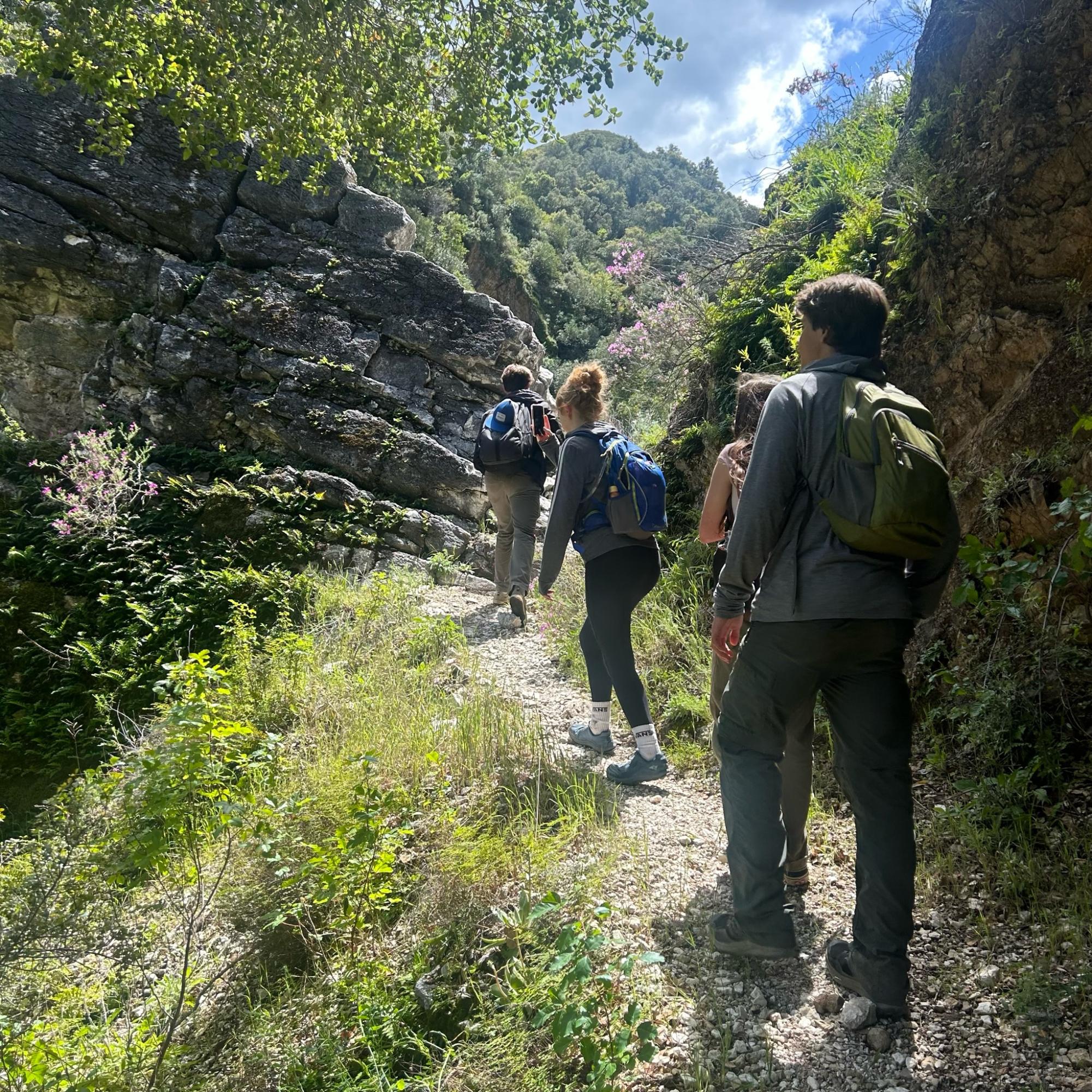
Nature’s sciences and its natural systems entice 72.7 percent of students at PRHS to enroll in classes and clubs centered around the
environment. Global Environmental Options (GEO), Environmental Science, Marine Biology, and AP Biology are all classes that contribute to PRHS’s science department, where students can learn about the Earth’s impacts. Additionally, PRHS offers the FSC (Field Studies Collaborative) program where students travel to different locations like Santa Cruz Island, Joshua Tree, Marine Tides, and the Aerospace program to gain real-life experience and an appreciation for our Earth. These trips are made with students in mind to help them connect with the land and allow them to learn more scientifically in their environment.
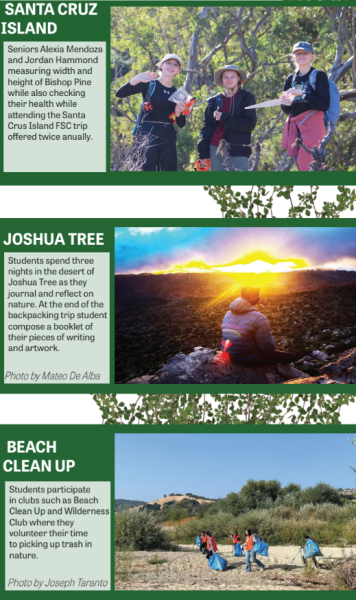
Senior Elliot Krames is just one small part of the 24.5 percent of Bearcats who have participated in FSC. Krames felt heavily impacted by her trip to Santa Cruz Island in the summer of 2023 and it helped her realize that as humans we need to protect our land.
“It is really eye opening to see the work that actually gets done in places that are conserved and protected,” Krames said.
GEO
, brought in the early 90s by former science teacher Mark Dimaggio, allows students to learn about the land they live on. These students go backpacking to various different sites including Santa Barbara, Big Bear, San Luis Obispo, and Escalante in Utah throughout the year, while also learning how to appreciate the land that humans have caused damage to on Earth. The main goal for this class is to prove to students that all you need in life is what fits in your backpack!
“GEO has helped me realize how much the Earth is really hurting due to humanity. I think the purpose of this class is to bring awareness to more eco-friendly ways of living,” senior Josie Crank said.
This class allows students to feel more appreciative of the land they inhabit while focusing on human impact on the environment through its enlightening curriculum. Students have the opportunity to apply their knowledge to real life as they explore local trails and eventually spend a week backpacking through Escalante National Park in Utah.
PRHS also offers over 8 science classes that engage students in the environment and the importance of the natural world around them.
AP Environmental teacher Jadyn Steffeans expresses that we need to take care of our land and environment around us because it will impact future generations, “I do really care for our environment, and I do think those things will have a massive impact on our future and future generations. I think it goes beyond saving trees and being a tree hugger. Environments are connected and
ecosystems are connected. If we are ignoring one aspect of it, or actively degrading one aspect, that has vast effects on the rest of the ecosystem, including us, ” Steffeans said.
These classes are training students to realize the ways we can fix and help
our Earths damages.
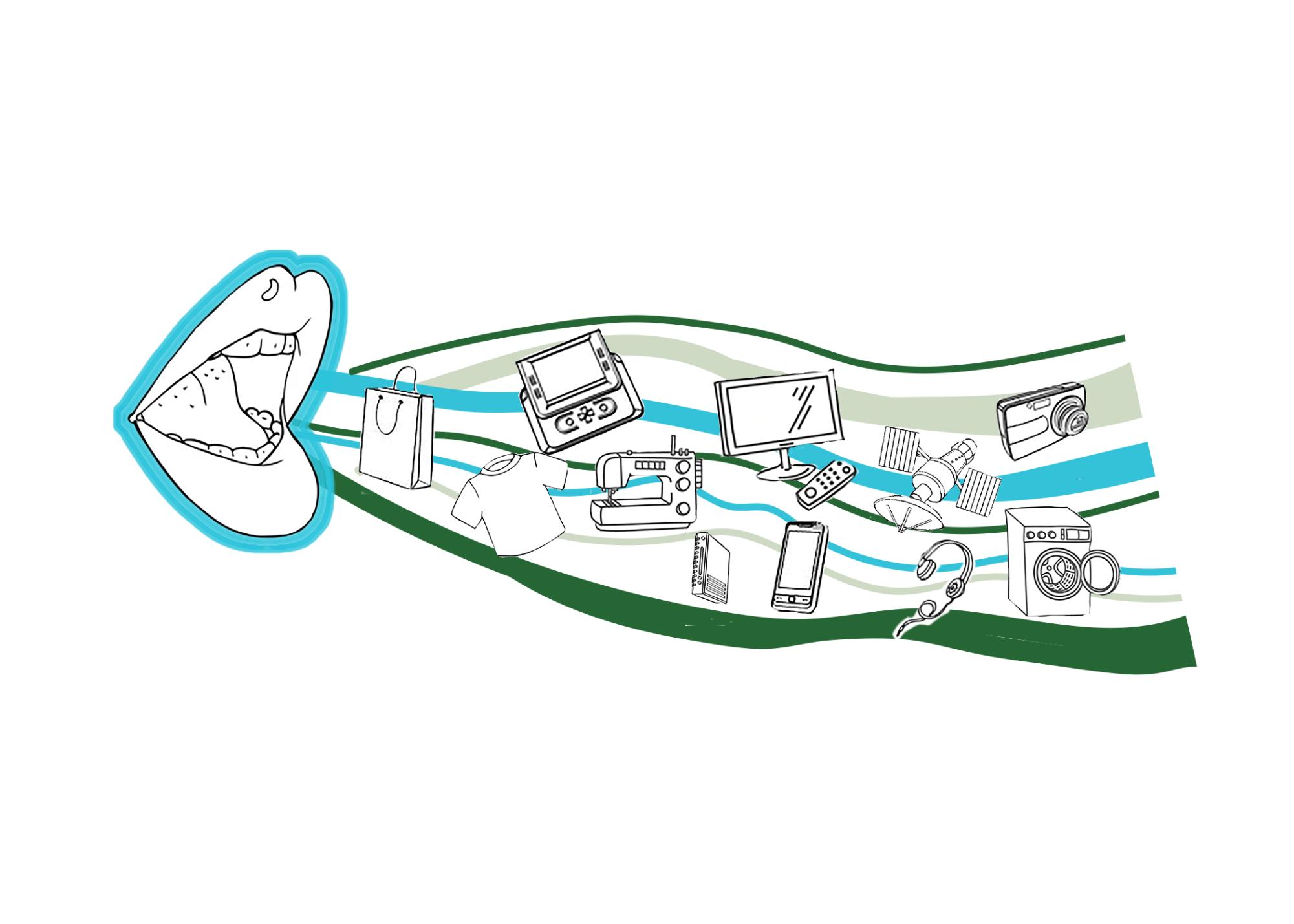
An average American’s life is built on commodities that are consumed at an alarming rate to account for our rampant demands, and the effect this has had on the environment only becomes more visible with time.
Consumerism is what drives the American economy in its current state, it referring to economic behaviors adopted by businesses to ensure increased consumer spending and contribute to the economy. America has been defined by this practice through things like online shopping, subscription based services, and retail chains. These all present different conveniences and ways for consumers to spend their money, and all of these are practices standard to an average American.
In a recent survey of students 88% of Bearcats are aware these practices are harmful to the environment, another 72.7% believe their own shopping practices and habits are harmful to the environment. It’s an issue we are directly involved in.
These different avenues for consumption have created an unreasonable demand for all sorts of products which needs to be met. The demand for different necessities and materials has grown more apparent with time and so have the environmental consequences. According to UN reports seen by The Guardian, the extraction of raw materials will go up by 60% by 2060, this is all to account for the demand in products which require raw materials like copper, iron, and gold. Increases in these raw materials being taken is also commonly linked to soil degradation and increased climate due to the practices used for them.
It’s a road headed straight for a worse future, as Fordham University climate researcher Emma Vega puts it, “The pattern of consumer over consumption, fueled by relentless economic growth and the internal desire for material goods, has emerged as a prominent driver of environmental degradation, pushing our planet to collapse”.
Times of year which encourage mass commercial consumption are also heavily linked to an increase in environmental harm. Columbia University’s State of the Planet found that during holiday seasons Americans produce 25% more waste than usual. Our rampant desire to consume is done to satisfy ourselves but ultimately comes at the behest of us and the very ground we walk.
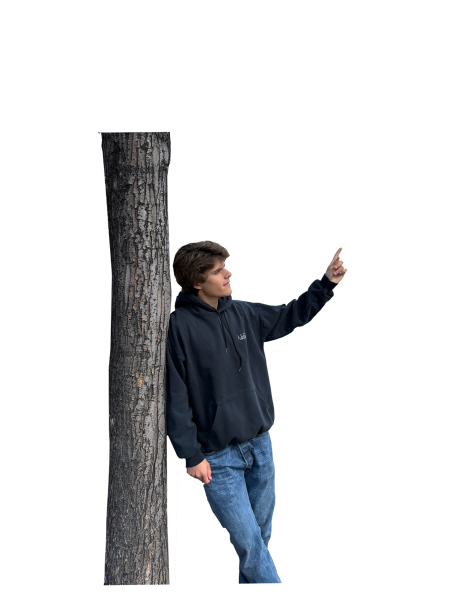
From the newest water bottle to the latest meme shirt on TikTok shop, consumerism surrounds our culture, but for the good of our environment we should avoid this spending culture at all costs. Personally, I try to live my life in a way that avoids unnecessary spending through these methods.
“Do I really need it?” is a great question we can all ask ourselves. One rule I try to live by is the one week rule: If I want to buy something that isn’t a basic necessity, I make myself wait at least a week after my initial urge to buy the item. Then, if I still want the item after a week, I figure that I will get good use out of it and it will not go to waste. This rule makes me purchase items based on long-term reasoning rather than short-term emotion, and has saved me from buying many useless things.
A couple of years ago, I saw a nice pair of headphones for sale and almost bought them, but after waiting a couple days, I realized I already had a pair of headphones that I didn’t use enough to justify buying the new ones.
While I try my best, I am not perfect in avoiding consumerism. I am a sucker for clearance sales, and I find it hard to pass up the opportunity of a good deal. Too many times I have found myself impulse-buying a new pair of flashy running shorts that I don’t really need the second they go on sale. These sales test my discipline for the one week rule due to the common time constraints of the low prices.
Here are the areas of my life where I avoid consumerism the most:
Clothing: To avoid consumerism culture, I try at all costs to not buy new clothing. I have worn some of the same pants, shirts, and sweatshirts since middle school, and I have no intention of replacing them anytime soon. While I try to suppress the urge to buy something new, thrift stores are where I allow myself to shop to my heart’s content, without the environmental consequences of buying new clothing.
Sports Equipment: I compete in both Cross Country and Track, which means I burn through lots of running shoes. To avoid consumerism and save money, I never buy the newest models of running shoes. It takes some extra time, but I have bought high quality running shoes in good condition at the thrift store, in the REI return section, and from friends. These are running shoes that would have otherwise gone to waste. I didn’t buy them new, so I am not supporting the companies and encouraging them to increase their supply. The way you spend your money sends a message to companies that they won’t ignore.
Food: To avoid consumerism with food, I make intentional choices with what I eat. Recently I have changed my diet to cut out red meat and I have limited my meat consumption to once a day at most. Livestock accounts for a large amount of greenhouse gas emissions and is a leading cause of water pollution. A more sustainable alternative that I have grown fond of is sardines. Sardines repopulate quickly, making them less susceptible to overfishing, and they are low in mercury because they are low on the food chain
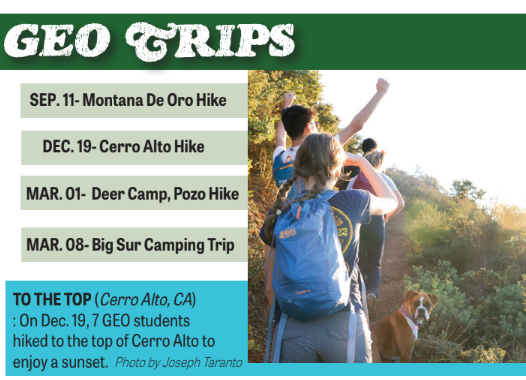
For three hours on Mar. 8, 21 students in GEO hiked up Big Sur with 40 pounds on their back. They are told to only pack what they need and spend the next day exploring their campsite, filtering river water, and cooking food around the campfire. Days like these are typical trips for GEO students, who spend time during class learning about human ideologies and impacts towards the environment. The class has gone on five hikes this year as they prepare for their week long backpacking trip in Escalante, Utah.
“You can overcome anything you thought impossible by shifting an aspect of what you carry,” senior Kylie Troy said, who has backpacked with FSC and is currently enrolled in GEO.
GEO is a senior class which stands for Global Environmental Options, first offered at PRHS in 1992. Mark Dimaggio, the former science teacher who helped create the class, was teaching an environmental science class which his students really enjoyed and he wanted to add an additional class that would give students more experience in nature such hiking and backpacking.
The class consists of six units that cover: climate change, ecology, pollution, the nitrogen cycle, hydrology and demography. The current teacher of GEO, Daniel Diaz, says when teaching he hopes his students can implement this knowledge while they are in nature and begin to notice the interconnections of humans and the land.
“I feel like I am the rock that is being dropped into a lake. It’s sort of like I am making a small ripple, but my students are the ripples that eventually make it across the lake, the lake being society. So if I teach students this and they go and share their knowledge, we can make an impact,” Diaz said.
As students learn about the effects of human impact on nature, they are more prepared and more insightful towards nature while they hike and camp.
“Being in nature really changes your perspective on humans and the environment. You can begin to notice how interconnected everything is and how human actions impact the planet,” GEO student Alexia Mendoza said.
In the second semester of the class, students read the philosophical novel, Ismeal by Daniel Quinn. The novel questions human “culture” as it explains how humanity has “takers and givers.” Every other Friday students are given a written quiz where they must answer a thought provoking question such as “Ishmeal argues that ‘we are captives of a system that compels us to destroy the world in order to live. What is he talking about? Do you agree?”
“Ever since I read the book it’s made me a little sad to realize that all of our ‘accomplishments’ can be damaging to the world. I think it gets most kids thinking about their place in a world of consumerism. Sort of like what’s wrong and what’s right?,” Diaz said.
The novel questions human ideologies such as consumerism. 82.1 percent of students said that human ideologies negatively impact the environment according to a PRHS survey of 44 students.
The material in this class is structured to educate students on the environment and their impact on nature. Dimaggio visited GEO in January as a guest speaker to give a lesson on mass extinction and express concern about a sixth mass extinction.
Senior Ethan Castelli says he agrees with a stronger education on environmental impacts.
“We shouldn’t turn a blind eye to nature because it was here before us, GEO has helped me realize that,” Castelli said.
Your donation will support the student journalists of Paso Robles High School. Your contribution will allow us to purchase equipment and cover our annual website hosting costs.














